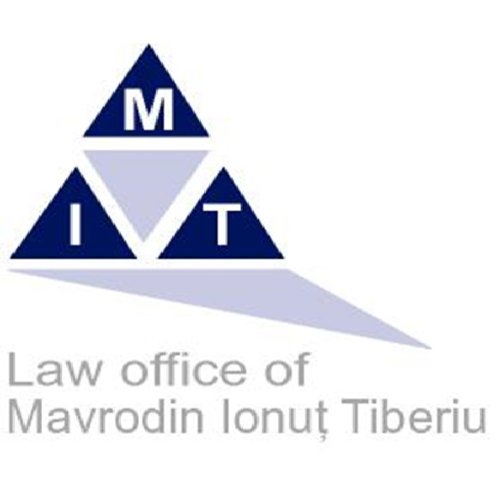Best Energy, Environment & ESG Lawyers in Constanța
Share your needs with us, get contacted by law firms.
Free. Takes 2 min.
List of the best lawyers in Constanța, Romania
About Energy, Environment & ESG Law in Constanța, Romania
Constanța is a key city on Romania's Black Sea coast, known for its vibrant port, industrial activities, and dynamic energy sector. This region is a focal point for renewable energy projects, maritime operations, oil and gas exploration, and shipping. At the same time, its environmental value - from coastal habitats to protected areas - makes compliance with both national and local environmental laws essential. The integration of ESG (Environmental, Social, and Governance) standards into business practices has become increasingly important, driven by both legal requirements and public expectations. Energy, Environment, and ESG law in Constanța addresses regulations overseeing sustainable development, pollution control, resource use, and corporate responsibility.
Why You May Need a Lawyer
A legal specialist in Energy, Environment, and ESG can provide crucial assistance in a variety of situations, including:
- Securing permits for energy or industrial projects
- Understanding ESG reporting and compliance requirements
- Navigating environmental impact assessments and approvals
- Defending against environmental fines or sanctions
- Handling disputes with authorities or third parties over pollution or land use
- Supporting mergers, acquisitions, or restructuring with environmental obligations in mind
- Advising on renewable energy developments, grid access, and incentives
- Managing liabilities related to contaminated land or hazardous waste
Whether you are a business, investor, NGO, or individual, having expert legal guidance can help avoid costly errors and achieve your goals while meeting legal responsibilities.
Local Laws Overview
Energy, Environment, and ESG law in Constanța operates within the national Romanian legal framework, aligned with European Union directives. Several legal areas are especially relevant:
- Environmental Protection: Law 137/1995 lays the foundation for environmental protection, imposing obligations on companies and individuals to prevent and control pollution.
- Environmental Impact Assessment (EIA): Projects likely to have environmental effects must undergo an EIA, per Government Decision 445/2009.
- Energy Law: Law 123/2012 on electricity and natural gas regulates the energy market. Additional regulations apply to renewable energy sources and grid connections.
- Waste Management: Law 211/2011 establishes the legal framework for waste minimization, recycling, and safe handling of hazardous materials.
- Water and Marine Protection: Special rules apply to activities near the Black Sea and in the Danube-Black Sea canal, focusing on preventing marine pollution.
- ESG and Corporate Responsibility: Certain companies, especially large ones and those listed on regulated markets, must report non-financial information under EU Directive 2014/95/EU.
Local authorities in Constanța oversee land use, permits, and enforcement, while national agencies set overarching policies and handle major approvals.
Frequently Asked Questions
What is ESG and why does it matter in Constanța?
ESG stands for Environmental, Social, and Governance. It refers to the criteria companies use to operate responsibly and sustainably. In Constanța, businesses with large-scale operations or public profiles need to address ESG issues to remain compliant and attractive to stakeholders.
Who regulates energy and environmental activities in Constanța?
Regulation is split between national regulators, such as the Romanian Energy Regulatory Authority (ANRE) and the National Environmental Protection Agency (ANPM), and local Constanța authorities managing permits and local enforcement.
When is an environmental impact assessment needed?
An EIA is required for projects likely to significantly affect the environment, such as new factories, energy facilities, waste management installations, and port expansions.
Can individuals or NGOs challenge permits or report environmental issues?
Yes, Romanian law allows individuals and NGOs to participate in public consultations and challenge permits at administrative or judicial levels if environmental concerns are not addressed properly.
Are there incentives for renewable energy in Constanța?
Renewable energy projects may benefit from support schemes, grid access priority, and other incentives under Romanian and EU programs, though terms can vary and legal guidance is recommended.
How are environmental breaches investigated?
Authorities may carry out inspections, sometimes announced and sometimes unannounced. Serious breaches may lead to fines, operational restrictions, or mandatory remediation measures.
What penalties apply for environmental non-compliance?
Penalties can include fines, suspension of activity, mandatory remediation, and even criminal liability in severe cases of negligence or repeated offenses.
Does ESG reporting apply to small businesses in Constanța?
Mandatory ESG (or non-financial) reporting currently targets large companies and listed entities. However, transparency expectations are growing even for smaller businesses operating in high-impact sectors.
What should you do if notified of an environmental violation?
Respond promptly, seek legal advice, cooperate with authorities, and ensure you understand the basis for the allegation before taking any admissions or remedial actions.
How can you find out if your planned project needs a permit?
Check with the Constanța Environmental Protection Agency and relevant municipal authorities early in your planning. Legal counsel can clarify permit requirements and streamline the process.
Additional Resources
Below are some helpful agencies and organizations:
- Constanța Environmental Protection Agency (APM Constanța): Handles local environmental permits and enforcement.
- Romanian Energy Regulatory Authority (ANRE): Manages licensing and compliance for energy activities.
- National Agency for Environmental Protection (ANPM): Reviews major projects and national-level environmental standards.
- Ministry of Environment, Waters and Forests: Sets overall policy and manages protected areas.
- Romanian Chamber of Commerce and Industry: Offers information and networking on business regulations including ESG matters.
- Local NGOs (such as Mare Nostrum): Advocate for environmental protections, especially related to coastal and marine areas.
Next Steps
If you need legal assistance in Energy, Environment, or ESG matters in Constanța:
- Gather relevant documents, such as permits, inspection reports, or proposed project details.
- Make a list of your specific questions or concerns.
- Contact a qualified local law firm or legal consultant with experience in these areas.
- Schedule a consultation to discuss your case, options, and the costs involved.
- Follow up promptly on legal advice to ensure timely compliance and address any legal risks.
Facing energy, environment, or ESG issues can be complex, but with proper legal support, you can navigate the regulatory landscape confidently and responsibly.
Lawzana helps you find the best lawyers and law firms in Constanța through a curated and pre-screened list of qualified legal professionals. Our platform offers rankings and detailed profiles of attorneys and law firms, allowing you to compare based on practice areas, including Energy, Environment & ESG, experience, and client feedback.
Each profile includes a description of the firm's areas of practice, client reviews, team members and partners, year of establishment, spoken languages, office locations, contact information, social media presence, and any published articles or resources. Most firms on our platform speak English and are experienced in both local and international legal matters.
Get a quote from top-rated law firms in Constanța, Romania — quickly, securely, and without unnecessary hassle.
Disclaimer:
The information provided on this page is for general informational purposes only and does not constitute legal advice. While we strive to ensure the accuracy and relevance of the content, legal information may change over time, and interpretations of the law can vary. You should always consult with a qualified legal professional for advice specific to your situation.
We disclaim all liability for actions taken or not taken based on the content of this page. If you believe any information is incorrect or outdated, please contact us, and we will review and update it where appropriate.
Browse energy, environment & esg law firms by service in Constanța, Romania
Constanța, Romania Attorneys in related practice areas.









